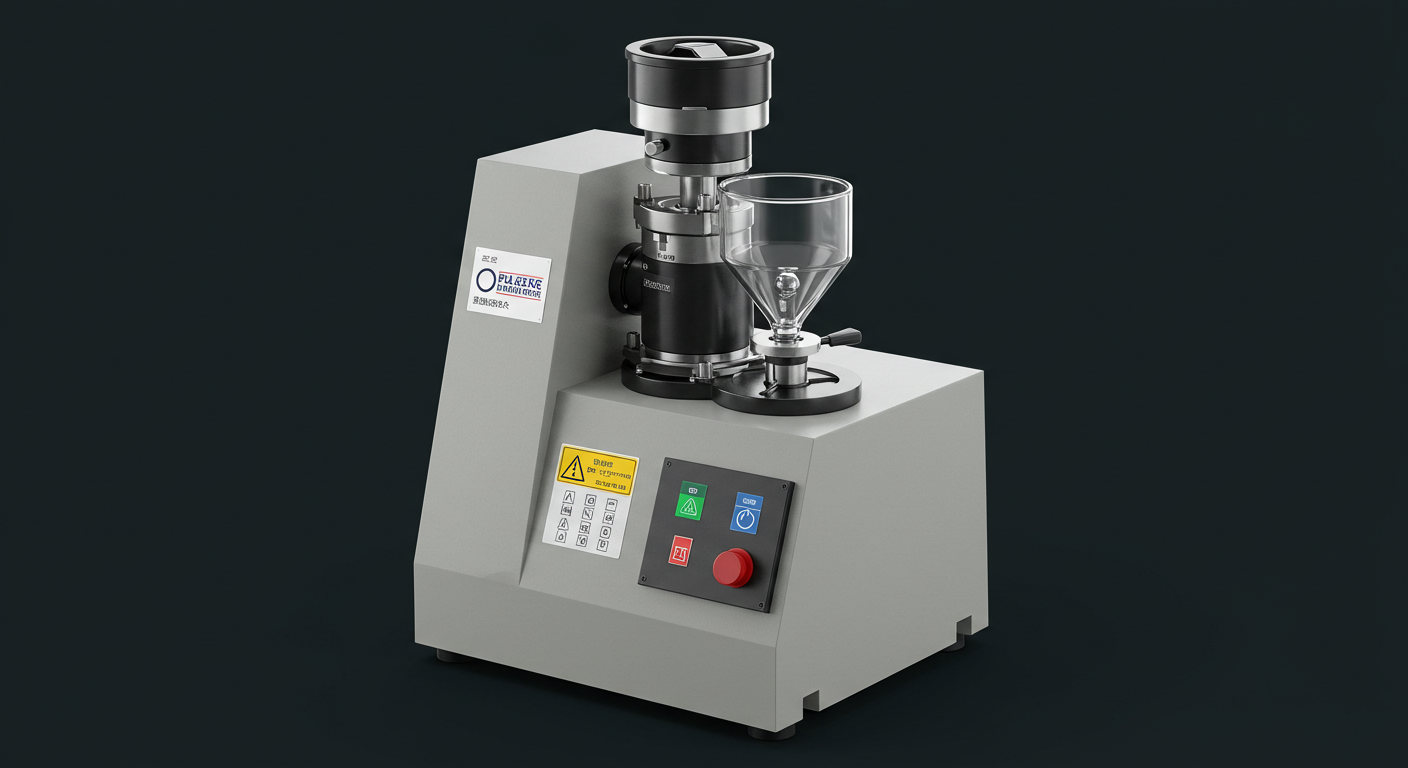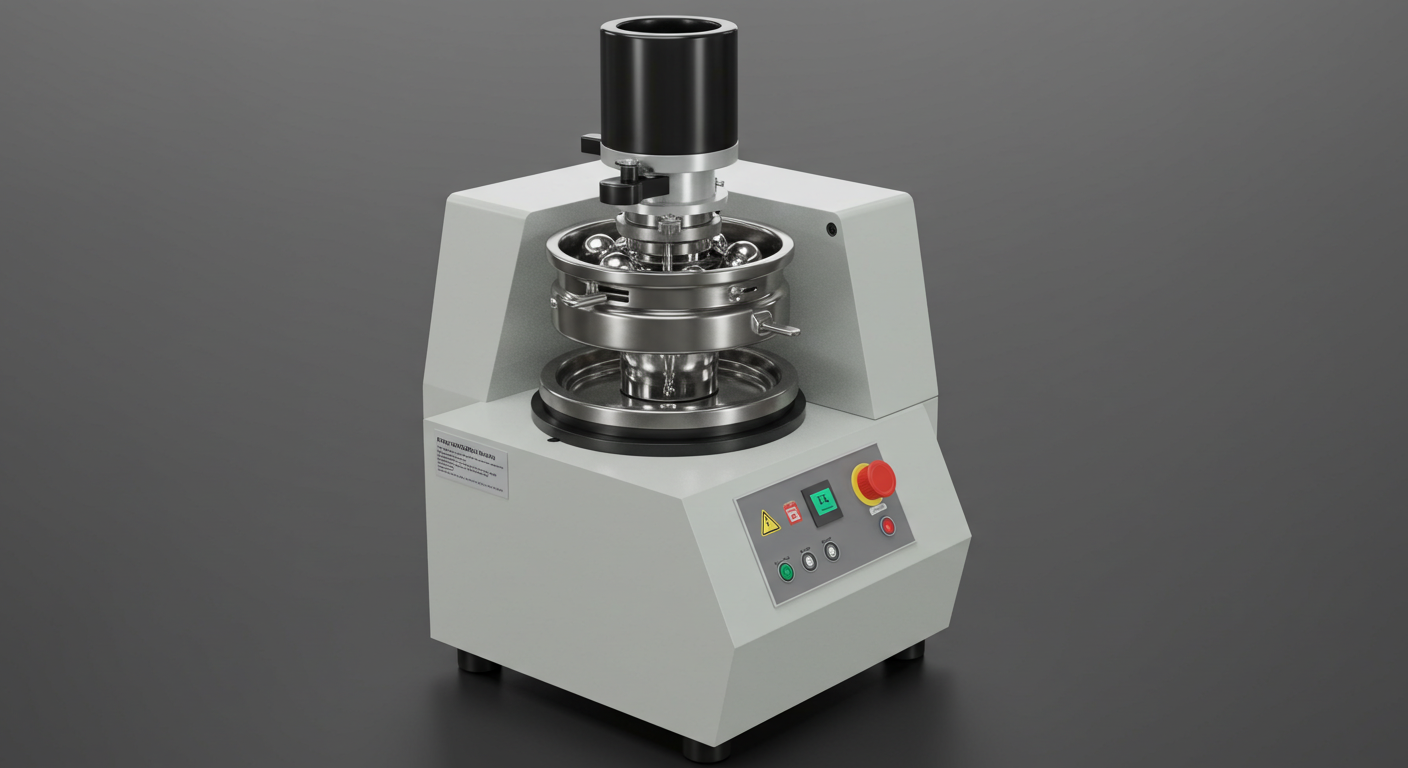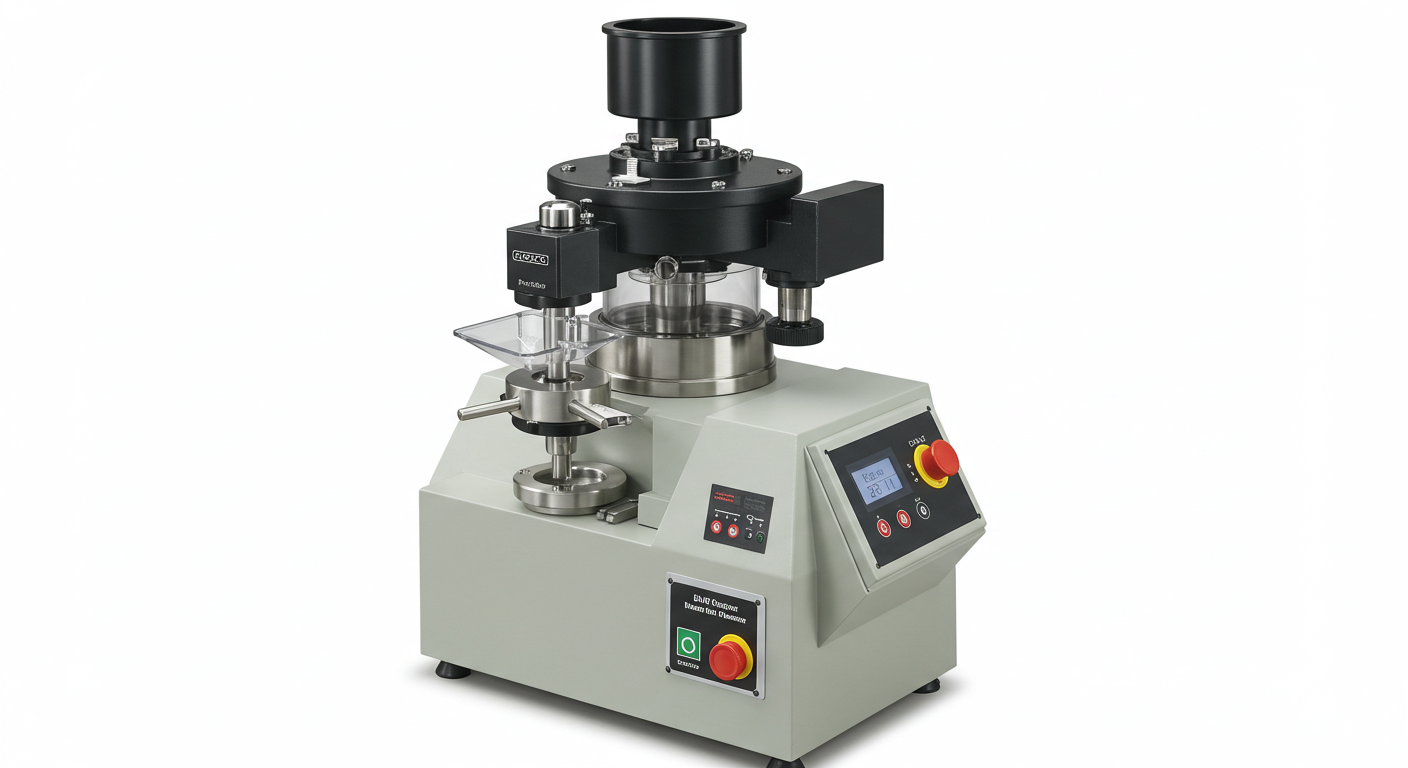Achieving consistent and reliable results in material science, chemistry, and pharmaceutical research often hinges on the precision of sample preparation. Among various techniques, planetary micro milling stands out as a highly effective method for particle size reduction and homogenization. Sourcing reliable and high-quality equipment is paramount, leading researchers to seek the TOP 9 lab Planetary Micro Mill seller. This guide explores the world of planetary micro mills, covering key considerations for selecting the right equipment and media, with a focus on the crucial role of [TOP 9 Agate Ball Mill Balls Factory] in achieving optimal milling outcomes.

Understanding Planetary Micro Milling
The Planetary Micro Mill is an essential tool in modern laboratories, offering a highly efficient method for grinding and mixing materials at a micro-scale. Unlike traditional ball mills, planetary micro mills utilize a unique motion that combines rotation around a central axis with the individual rotation of grinding jars. This dual-axis rotation generates intense centrifugal forces, leading to high-energy impacts between the grinding media (balls) and the sample material. The result is rapid and effective particle size reduction, often achieving sub-micron or even nano-scale particle sizes. Planetary Micro Mill is suitable for grinding soft, hard, brittle and fibrous materials.
Key Benefits of Using a Planetary Micro Mill:
Efficient Particle Size Reduction: Achieves very fine particle sizes in a short amount of time.
Homogeneous Mixing: Ensures uniform distribution of different materials within a sample.
High Energy Milling: Suitable for processing a wide range of materials, including hard and brittle substances.
Small Sample Size: Ideal for applications where sample material is limited.
Controllable Parameters: Allows precise control over milling speed, time, and other variables.
The Role of [TOP 9 Agate Ball Mill Balls Factory] in Planetary Micro Milling
The effectiveness of a planetary micro mill is significantly influenced by the quality and properties of the grinding media used. Agate balls are a popular choice due to their hardness, chemical inertness, and minimal contamination. These properties make them well-suited for applications where sample purity is paramount. Sourcing these high-quality agate balls from the [TOP 9 Agate Ball Mill Balls Factory] ensures that you are using the best possible materials for your milling process.
When selecting agate balls from the [TOP 9 Agate Ball Mill Balls Factory], consider the following:
Size: Different ball sizes can influence the milling process. Smaller balls generally produce finer particles, while larger balls provide more aggressive grinding.
Purity: Ensure that the agate balls are of high purity to minimize contamination of your samples.
Shape: Spherical balls are the most common and generally provide the best performance.
Density: Higher density balls will provide more impactful grinding.
Exploring Popular Planetary Micro Mill Models
The market offers a variety of planetary micro mill models, each with its own features and capabilities. Here are some examples to consider:
FRITSCH PULVERISETTE 6: [FRITSCH PULVERISETTE 6] is Known for its robust design and efficient milling performance, this model is suitable for a wide range of applications.
Planetary Micro Mill PULVERISETTE 7 classic line: The [Planetary Micro Mill PULVERISETTE 7 classic line] offers precise control over milling parameters and is ideal for applications where repeatability is crucial.
FRITSCH PULVERISETTE 7: Premium Line vs. Classic Line
The FRITSCH PULVERISETTE 7 series offers both a Premium Line and a Classic Line, each catering to different needs and budgets. The Premium Line typically features advanced control options, such as programmable speed profiles and real-time monitoring, while the Classic Line offers a more streamlined and cost-effective solution.
Key differences between the Premium Line and Classic Line:
| Feature | Premium Line | Classic Line |
|---|---|---|
| Control Options | Advanced, programmable | Basic, manual |
| Monitoring | Real-time | None |
| Automation | Higher degree of automation | Lower degree of automation |
| Price | Higher | Lower |
Navigating the Laboratory Ball Mill Market
The term Laboratory Ball mills encompasses a broad range of milling equipment, from traditional ball mills to highly specialized planetary micro mills. When choosing a laboratory ball mill, consider factors such as the sample size, the desired particle size, and the materials being milled. It's essential to assess your specific needs and choose a mill that is well-suited for your application.
Types of Laboratory Ball Mills:
Planetary Ball Mills: For fine grinding and homogeneous mixing.
Tumbling Ball Mills: For large-scale milling of relatively soft materials.
Vibratory Ball Mills: For rapid grinding of small samples.
Buying Considerations: [Buy Lab Planetary Ball Mill Grinding Machine]
When you [Buy Lab Planetary Ball Mill Grinding Machine], consider the following factors to ensure that you are making the right investment:
Manufacturer Reputation: Choose a reputable manufacturer known for producing high-quality and reliable equipment.
Technical Specifications: Carefully review the technical specifications of the mill to ensure that it meets your requirements.
Customer Support: Select a manufacturer that provides excellent customer support and service.
Warranty: Check the warranty offered by the manufacturer to protect your investment.
Addressing Common Questions: [Planetary Ball Mill Recommendations]
The online community is a valuable resource for gathering information and seeking [Planetary Ball Mill Recommendations]. Online forums and communities often discuss different mill models, their pros and cons, and provide insights from experienced users.
Tips for seeking recommendations online:
Be Specific: Clearly state your requirements and the materials you will be milling.
Provide Details: Share information about your research or application to help others provide relevant recommendations.
Consider Multiple Opinions: Don't rely on a single recommendation; gather a variety of opinions and perspectives.
Finding the Best Value: [Best Price All Lab Planetary Ball Mills for Sale]
When searching for [Best Price All Lab Planetary Ball Mills for Sale], it's essential to balance price with quality and performance. Look for reputable suppliers that offer competitive pricing and reliable equipment. Be wary of overly cheap options, as they may compromise on quality and durability.
Strategies for finding the best value:
Compare Prices: Get quotes from multiple suppliers to compare prices.
Look for Discounts: Inquire about discounts or special offers.
Consider Refurbished Options: Refurbished equipment can offer a cost-effective alternative, but ensure that it comes with a warranty.
The Importance of Proper Maintenance
Proper maintenance is crucial for ensuring the longevity and performance of your Laboratory Planetary Ball Mill. Regularly clean the grinding jars and balls, and inspect the mill for any signs of wear or damage. Follow the manufacturer's recommendations for maintenance procedures and schedules. A well-maintained mill will provide consistent and reliable results for years to come.
Key maintenance tips:
Regular Cleaning: Clean the grinding jars and balls after each use.
Inspection: Inspect the mill for wear or damage.
Lubrication: Lubricate moving parts as recommended by the manufacturer.
Applications of Planetary Micro Mills
Planetary micro mills find application across a wide range of industries. Some notable applications include:
Pharmaceuticals: Grinding APIs to improve bioavailability and drug delivery.
Cosmetics: Milling pigments and other ingredients for desired texture and color.
Materials Science: Preparing samples for analysis using techniques such as XRD and SEM.
Geology: Pulverizing rocks and minerals for geochemical analysis.
Nanotechnology: Creating nanoparticles and nanomaterials with controlled size and morphology.
Beyond Agate: Alternative Grinding Media
While agate is a popular choice, other materials can be used for grinding media depending on the application. Some alternatives include:
Zirconia: Offers high hardness and wear resistance.
Stainless Steel: Suitable for grinding hard and abrasive materials.
Tungsten Carbide: Provides exceptional hardness and is ideal for milling extremely hard substances.
Finding Reliable Sellers: Key Characteristics
Identifying the TOP 9 lab Planetary Micro Mill seller involves looking for several key characteristics that indicate reliability and quality. These include:
**Extensive Product Range:** A wide selection of planetary micro mills and accessories to suit different needs.
**Detailed Product Information:** Comprehensive technical specifications and descriptions for each product.
**Customer Reviews and Testimonials:** Positive feedback from other customers regarding product quality and service.
**Strong Technical Support:** Readily available technical expertise to assist with product selection and troubleshooting.
**Competitive Pricing:** Fair and transparent pricing that reflects the quality and features of the products.
**Warranty and Return Policies:** Clear and favorable warranty and return policies for customer protection.
**Fast and Reliable Shipping:** Efficient order processing and shipping to ensure timely delivery.
**Good Communication:** Responsive and helpful customer service to address inquiries and concerns.
**Industry Reputation:** A well-established reputation in the laboratory equipment industry.
Emerging Trends in Planetary Micro Milling
The field of planetary micro milling is constantly evolving, with new technologies and applications emerging. Some key trends to watch include:
Automated Systems: Integration of automation to improve efficiency and reduce operator error.
Advanced Control Systems: More sophisticated control systems for precise control over milling parameters.
Miniaturization: Development of even smaller and more compact micro mills for specialized applications.
TOP 9 lab Planetary Micro Mill seller : The List
| Name of factories | Speed Range | Jar Capacity | Motor Power |
|---|---|---|---|
| Seller 1 | 50-800 rpm | 50ml to 500ml | 1.5 kW |
| Seller 2 | 100-1000 rpm | 25ml to 1000ml | 2.2 kW |
| Seller 3 | 50-1200 rpm | 10ml to 250ml | 0.75 kW |
| Seller 4 | Variable, up to 1500 rpm | 5ml to 100ml | 0.5 kW |
| Seller 5 | 50-800 rpm | 50ml to 500ml | 1.5 kW |
| Seller 6 | 100-1000 rpm | 25ml to 1000ml | 2.2 kW |
| Seller 7 | 50-1200 rpm | 10ml to 250ml | 0.75 kW |
| Seller 8 | Variable, up to 1500 rpm | 5ml to 100ml | 0.5 kW |
| Seller 9 | Variable, up to 1500 rpm | 5ml to 100ml | 0.5 kW |
Conclusion: Selecting the Right Planetary Micro Mill
Choosing the right planetary micro mill is a critical decision that can significantly impact the quality and efficiency of your laboratory research. By carefully considering your specific needs, exploring available models, and seeking recommendations from reliable sources, you can find the perfect mill for your application. Remember to prioritize quality, reliability, and customer support when selecting a supplier. Sourcing high-quality agate balls from the [TOP 9 Agate Ball Mill Balls Factory] is essential for achieving optimal milling outcomes. The TOP 9 lab Planetary Micro Mill seller offers a range of options to meet diverse research needs. With the right equipment and careful planning, you can unlock the full potential of planetary micro milling in your laboratory.



